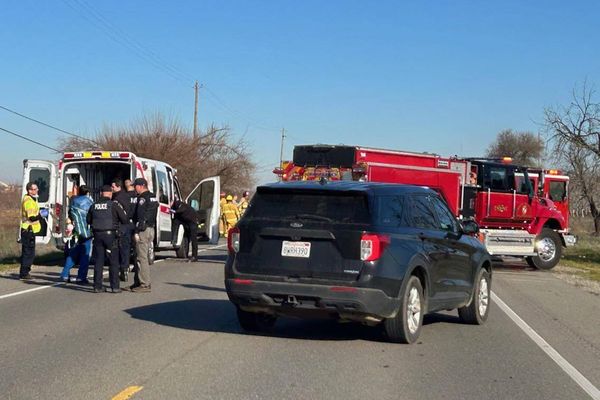Imposing a wealth tax which hit London hardest is a matter for Chancellor Rachel Reeves, says a minister as the Government seeks to balance the public finances.
Education minister Stephen Morgan stressed that decisions on tax would be “assessed in the round” at the autumn Budget after a Labour revolt on welfare reforms dealt a £5 billion blow to the Treasury’s spending plans, on top of the £1 billion U-turn on winter fuel payment cuts.
On a wealth tax, he emphasised that Labour values included that “people with the broadest shoulders” should carry more of the tax burden.
But he also said that the Government did not want to damage the aim of growing the economy, which he insisted was its number one priority despite the highly controversial “jobs tax” of hiking National Insurance on employers.
Downing Street later stressed that Ms Reeves had ruled out a wealth tax in the past.
But the Prime Minister’s official spokesman stopped short of ruling out such a levy being imposed at the autumn Budget, saying: “I can’t comment on future tax policy.”
He added that the Government’s position was that “those with the broadest shoulders should carry the greatest burden” on tax, and stressed that the top one per cent of taxpayers paid around a third of income tax.
Ms Reeves has not ruled out new tax rises and reportedly warned the Cabinet last week that the welfare rebellion which forced the Government to abandon benefit reforms meant tax rises were now more likely and would be harder to find than in her first Budget.

Amid the row, former Labour leader Lord Kinnock has raised the prospect of a wealth tax which he claimed could raise up to £11 billion for the Government.
Such a move would inevitably hit London hardest given it has the greatest number of wealthy people in the country, partly due to high property prices.
Asked whether he backed a wealth tax, Mr Morgan told LBC Radio: “Obviously , tax is a matter for the Chancellor and will be assessed in the round in the autumn Budget.
“Look at some of the actions that we have already taken that demonstrate Labour values... on the jet tax, on the profits for energy companies.
“We think that people with the broadest shoulders should pay more.”
But pressed whether he supports a wealth tax, he added, seemingly referring to the welfare revolt: “Our relentless focus is on growing the economy and obviously there are cost implications for all decisions that Parliament makes.”

Lord Kinnock, who led Labour from 1983 to 1992, told Sky News that a “cloud hangs over the accomplishments of the Government”, as Sir Keir Starmer marked a year in office this weekend, with its policies “barely being noticed” and “obscured” by rows over welfare and winter fuel.
He said there are things the party could do that “would commend themselves to the great majority of the general public” and that these included “asset taxes”.
“By going for an imposition of 2% on asset values above £10 million, say, which is a very big fortune, the Government would be in a position to collect £10 billion or £11 billion,” he argued.
Shadow chancellor Sir Mel Stride said he thought a wealth tax would be “the worst thing to do” and opposed the idea of “piling further taxes on the wealth creators”.







